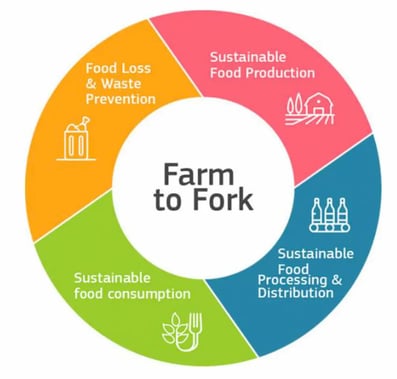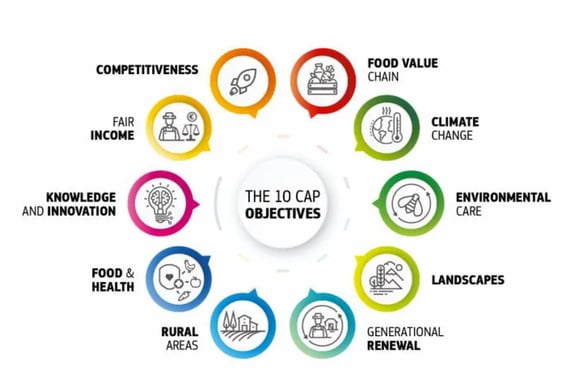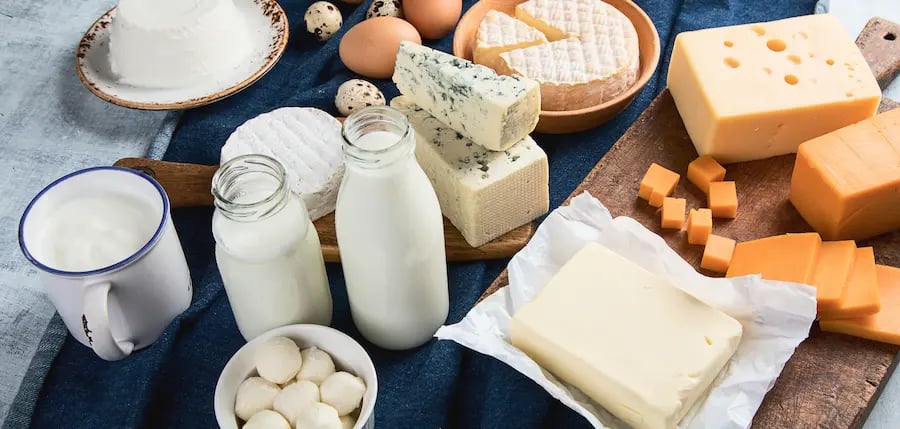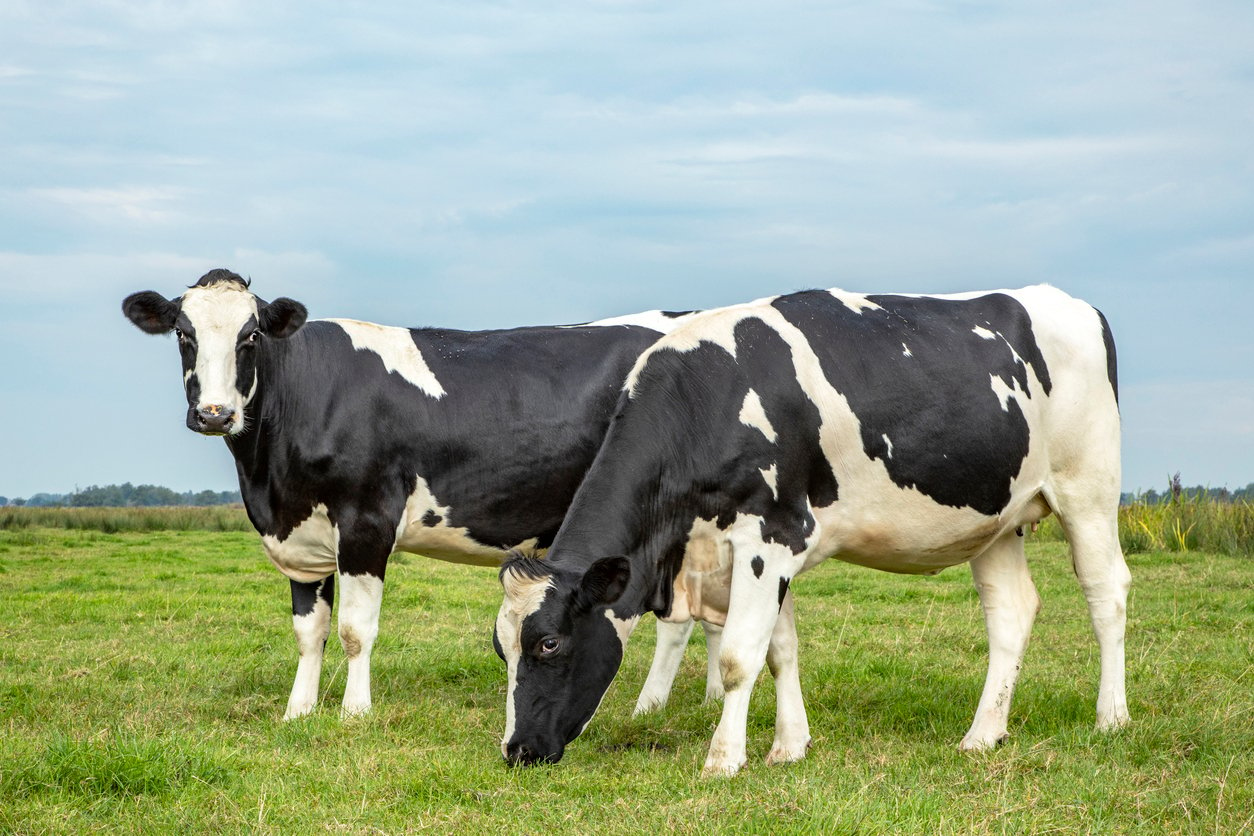On May 20th, 2020, the European Commission adopted the Farm to Fork Strategy highlighting its aim for a fair, healthy and environmentally friendly food system. Together with the Biodiversity Strategy, these tools, mutually reinforcing, would bring together nature, farmers, business and consumers for jointly working towards a competitively sustainable future for EU.
Prefer to listen to this article? Click the play button below and enjoy our podcast!
Framing the F2F Strategy
The Farm2Fork (F2F) strategy aims to “make food systems fair, healthy and environmentally friendly”, and is considered a corner stone of the European Green Deal (EGD) that sets out to make Europe the first climate-neutral continent by 2050 and was presented as the world's first public state-led commitment to climate neutrality. This strategy sets the roadmap to reduce the environmental and climate footprint of the EU food system and strengthen its resilience, ensure food security in the face of climate change and biodiversity loss.
According to the F2F vision, sustainable food systems should:
- have a neutral or positive environmental impact;
- help to mitigate climate change and adapt to its impacts;
- reverse the loss of biodiversity;
- ensure food security, nutrition and public health, making sure that everyone has access to sufficient, safe, nutritious, sustainable food;
- preserve affordability of food while generating fairer economic returns, fostering competitiveness of the EU supply sector and promoting fair trade.

F2F objectives and the Common Agricultural Policy (CAP)
The main objectives of this strategy are:
- Ensuring sustainable food production;
- Ensuring food security;
- Stimulating sustainable food processing, wholesale, retail, hospitality and food services practices;
- Promoting sustainable food consumption and facilitating the shift to healthy, sustainable diets;
- Reducing food loss and waste;
- Combating food fraud along the food supply chain.
To pursue its application, the F2F strategy sets regulatory and non-regulatory initiatives with the common agricultural policy (CAP) as key tool to support a just transition. To facilitate this transition, the involvement of advisory services, financial instruments, and research and innovation are key actions to help the operationalization of the strategy, develop and test solutions, overcome barriers and uncover new market opportunities by including the concept of sustainability in the way we produce and consume our food.
For the period 2023-27, the common agricultural policy (CAP) is built around ten key objectives focused on social, environmental and economic goals.
Taken as a whole, the CAP’s objectives cover the three pillars of sustainability (environmental, economic, and social).
F2F implications in livestock systems
EU agriculture is the only major system in the world that has done a great effort to decrease greenhouse gas (GHG) emissions (approximately by 20% since 1990). Still, there is a margin to continue the work. In this way R&D activities and subsequent implementation of GHG mitigating measures in livestock production systems should be in the minds of every practitioner to contribute to this objective. Also, according to the F2F, there is still a need to reduce dependency on pesticides, promote the prudent use of antimicrobials, reduce excess fertilization, increase organic farming, improve animal welfare, and reverse biodiversity loss. The animal health & welfare areas are currently innovating and looking into technological and digital transformation. Breakthroughs in several areas like biotechnology, detection tools and robotics and advanced vaccines, amongst others, will become essential tools for the future of both livestock farming and the veterinary profession.

Take Home messages
The Farm2Fork strategy aims to set the roadmap to reduce the environmental and climate footprint of the EU food system and this includes livestock production system. Practitioners are an essential part in disseminating knowledge and promoting the implementation of technical solutions/practices trough farmers in order to optimise the health and welfare of animals in their care, reduce environmental impacts, ensure better traceability, and support responsible use of medicines, amongst others.
References
- Communication from the commission to the european parliament, the council, the european economic and social committee and the committee of the regions A Farm to Fork Strategy for a fair, healthy and environmentally-friendly food system. COM/2020/381 final. https://eur-lex.europa.eu/legal-content/EN/TXT/?uri=CELEX:52020DC0381
- European Commission: Farm to Fork strategy for a fair, healthy and environmentally-friendly food system. https://food.ec.europa.eu/horizontal-topics/farm-fork-strategy_en
- Farm2Fork Strategy Action Plan 2020. https://food.ec.europa.eu/system/files/2020-05/f2f_action-plan_2020_strategy-info_en.pdf
- Antimicrobial Resistance in the EU/EEA A One Health Response: A Briefing Note For EU/EEA countries to inform the French presidency of the EU council. 2022. https://www.oecd.org/health/Antimicrobial-Resistance-in-the-EU-EEA-A-One-Health-Response-March-2022.pdf
About the author
Ana Sofia Santos (Head of Research and Innovation at FeedInov CoLAB)
Ana Sofia Santos holds a MSc in Animal Production and a PhD in Animal Science, both on the Nutrition area. She is currently Head of research and Innovation at FeedInov CoLAB, an interface structure between the academia and the animal feed industry, promoting innovative approaches to animal feeding. Her current area of research interest resides on animal production systems and the integration of livestock and plant production systems within a holistic vision of circularity in food production.
Explore author’s articles



Leave your comments here